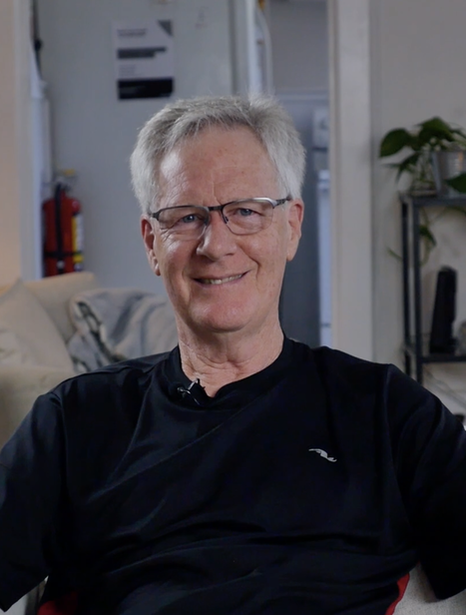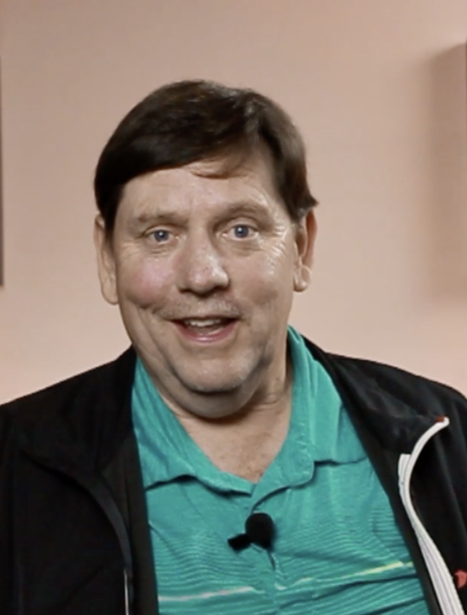Beth SaltI was in my 20s and had just moved. I had been job searching for a while and had a couple of interviews, but wasn’t getting any job offers. I had had some temp work to help pay the bills, but I needed a permanent gig that would be reliable. I finally got an interview at a local private school with a very kindly gentleman who asked me all the usual questions and then he said very directly, “You know, you are an excellent candidate and I am very interested in hiring you, but I honestly think you would be bored with this job. I think you should wait for something better than this.” I was completely thrown off. I just said to him, “But I need a job!” And to be honest, if he’d offered it to me, I’d have taken it.
But he was right. Two weeks later, I had an interview across the road at another school and they hired me. I worked there for 3 years and loved the job. It was the first time I was stretched in my career and it gave me great skills that I still use today. I’m so glad that kind man didn’t offer me that job! However, it taught me how hard it can be to say no to the thing that is easy and in front of you, rather than to reach for the harder or the unknown. I have seen many students I work with do the same thing: sticking with the job they have done for years and know really well (serving at a restaurant, working in retail) rather than stretch into the unknown. There are risks. It can be scary to step into a career job, and may result in waiting longer than you would want to. It may not work out right away. However, to shift into the career you’ve been training for and dreaming of, you need to start seeing yourself as working towards a “career” rather than working in a “job”. The place to start is in how you present yourself on your resume and in your cover letter. There is a skill that needs to be learned in writing strong resume content. Many students write their resume to reflect that mindset by describing their job duties. A career resume shows skills that have been developed through multiple work experiences and that can be transferred into another role. For example, a person with three years of experience in a fast-food restaurant has amazing skills in working under pressure, meeting tight deadlines, solving problems and communicating. It isn’t always easy to show those to potential employers, however it is possible to learn! Example: Morgan has worked at Wendy’s for two years as a Crew Member. She is applying to work as a Legal Assistant in a law firm. Her resume lists “Prepared food orders quickly” and “Kept restaurant clean”. Neither of these skills will be needed to work in a law office, so we can change them around to make them relevant.
Once you get the interview, you have to do the work of learning what to say and how to speak like a professional in your field, not a retail worker or high school student in a part-time job.. Every interview gives you experience. Every job gives you experience. Every experience gives you experience. Leverage what you have to get you where you want to go. And don’t be afraid to make use of career services in your community. Employment Ontario offers free careers services in most communities throughout the province. Many resources are available online and easily accessible. The process of moving into a career and out of the part-time job mindset is all in your head. If you feel ready and take hold of the opportunity, you will rise up into it. Even if you have a few flops along the way, it’s all good learning. Your attitude of being a learner and willing to try will be the best favour you can give yourself.
5 Comments
3/15/2021 1 Comment Aerodynamic or Ergonomic?Beth saltI used to get these two words mixed up all the time even though I know they are completely different. For some reason they seemed similar to me. Recently the Holy Spirit showed me that they are two different aspects of how we approach our lives and careers:
Aerodynamic - this refers to how objects move efficiently through air to reduce friction and drag. People with aerodynamic careers think about long-term plans and strategize to move forward. There can be many reasons for being aerodynamic, and not all of them are negative. The person may be ambitious, easily bored, want to achieve a lot of different goals, or even save for a large purchase. How do you plan for an aerodynamic career? Your long-term and short-term goals should be set and evaluated regularly to guide you along the way.
Ergonomic - this refers to systems and actions intended to minimize repetitive strain or injury due to consistent use. People with ergonomic careers intend to stay put for the long term. They may move within the same organization, but don’t intend to go anywhere else. They may put up with a number of conflicts and challenges in order to maintain the stability of a predictable situation. How do you plan an ergonomic career? Find ways to avoid strain or burnout from repetitive behaviour.
Neither of these two career paths is better than the other. They both have positive and negative sides. You may gravitate to the one that is most comfortable, but you should prepare for the possibility that you will need to pivot and accept more change (or less) than you like. See it as an opportunity for growth. God will be right there with you! 3/8/2021 1 Comment career or calling?Beth salt“Sing to him a new song; play skilfully, and shout for joy.”
Psalms 33:3 NIVUK There is a traditional school of thought that a calling is one of the Biblical, trusted job titles: ordained ministry, missionary, evangelist, worship leader, Bible teacher, etc. Anything that is not one of these, is a job. A career is traditionally considered a path of (usually related) jobs over time. We need to take back the idea that careers are not callings and vice versa. Why couldn’t God be the Author of this process, leading us and guiding us along the way? Career advising encourages us to review our interests, personality traits, and strengths to paint a picture of a suitable career. However this leaves out the Christian worldview considering how we were designed and gifted by our Heavenly Father. Because most spiritual gifts assessments are focused on the spiritual gifts outlined in the Bible, I recommend considering a secular career assessment that considers your personality, interests and values. It is worth paying for a professional to guide you through the process if you have no idea which direction you want to go. Your local community college probably offers assessment to community residents for a fee. But your identity, spiritual (and natural) gifting and unique creation must be part of your consideration in finding a calling. Here are a few questions to work through before the Lord. Make time and space to listen and write what you hear. 1. What keeps coming up over and over? In what areas do friends come to you for advice? What are you known for? 2. What makes your heart happy? If it’s sleeping, then think of something else… 3. What words have been spoken over you - either directly from significant Bible verses, prophecy or experiences you have had in God?
If you can’t think of anything, ask your close friends who have known you a long time, or ask a family member who knows you well and who you trust. You have to weigh everything to check that it lines up with who you know yourself to be and what the Bible says, but it can be useful to seek input from someone else. Above all, know that your Father in heaven has input on this too. If you ask HIm, He will tell you what He sees. The men who built the tabernacle in the desert were craftsmen with established careers . When they stepped forward to create parts of God’s meeting place, it was a calling from God himself, and an act of worship. “Then the LORD said to Moses, ‘See, I have chosen Bezalel son of Uri, the son of Hur, of the tribe of Judah, and I have filled him with the Spirit of God, with wisdom, with understanding, with knowledge and with all kinds of skills – to make artistic designs for work in gold, silver and bronze, to cut and set stones, to work in wood, and to engage in all kinds of crafts. Moreover, I have appointed Oholiab son of Ahisamak, of the tribe of Dan, to help him. ‘I have given ability to all the skilled workers to make everything I have commanded you:” Exodus 31:1-6 NIVUK Their skill was raised to far more than they could have ever imagined. I love that God even thought of gifting Oholiab to help Bezalel - it was too big a task for just one man. God’s plan for your career exceeds your imagination. What is He calling you to? It may be something unexpected, or it may be something you knew all along. Know that whatever it is, it will set your heart on fire. Be bold and grab hold of the calling you have in Him and in your career. You can find Beth Salt on youtube at: https://www.youtube.com/channel/UCw6K2sBVkVJmxI68lev2bnA |
Blog Authors Christine oldingClaudia OngoBruno IerulloRichard PaulRob ReidJustin madoniaSteve OngoArchives
August 2023
Categories |







 RSS Feed
RSS Feed